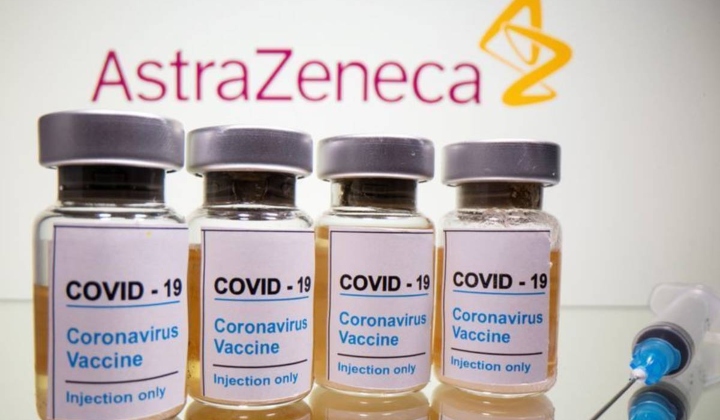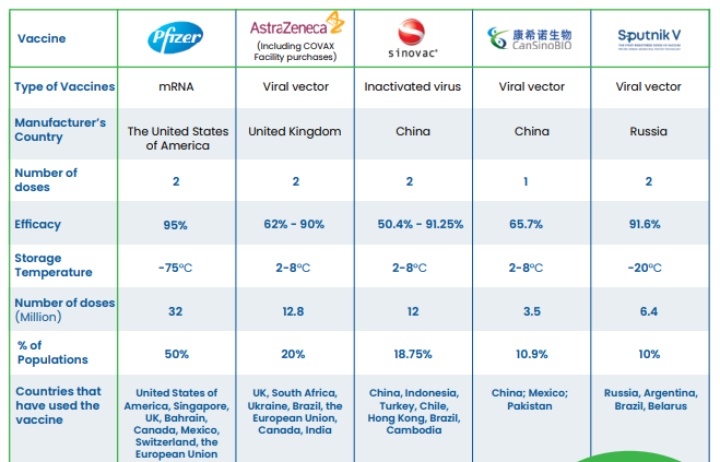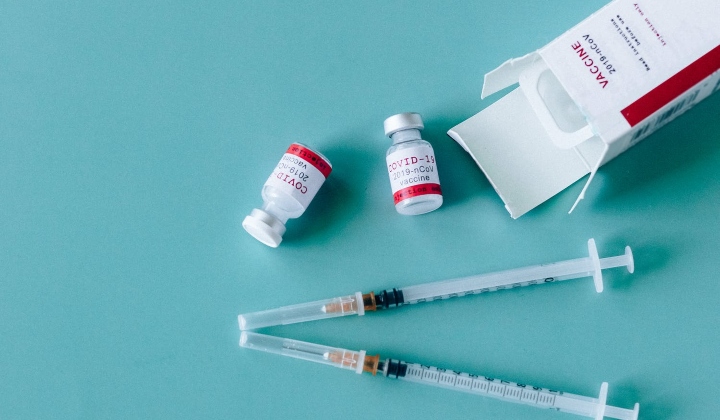Explaining The Most Recent Statistics About The AstraZeneca Vaccine
The benefits of the vaccine in terms of preventing deaths and serious disease from COVID-19 still outweigh its risks by far.

Subscribe to our Telegram channel for the latest stories and updates.
With the AstraZeneca vaccine being made available to Malaysians who want it, some have raised concerns and are wondering whether it’s worth the risk of getting the virus vs the (spoiler: not very likely or serious) risk of side-effects from the vaccine.
Twitter user @umploopy broke it down for us.
I made a quick FAQ guide for the AstraZeneca vaccine bc the health ministry couldn’t have been sloppier by just dumping a page of links at us. You can access the list of references I used at https://t.co/2sSD4PrmpH to read further. Hope this helps in making your decision! pic.twitter.com/3LctkMQ9WI
— deeps (@umploopy) May 1, 2021
How effective is the vaccine ?

AstraZeneca trials in the US reveal that out of 32,449 participants, the efficacy rate against Covid-19 was 76%, while for those aged above 65, the rate was 85%.
Compared to other vaccines, the Pfizer vaccine has 95% efficacy, Sinovac vaccine has 50.4 – 91.25% efficacy, and CanSinoBIO vaccine has 65.7% efficacy.
What’s the blood clotting issue?
In rare cases, there have been signs of a blood clotting problem called Thrombosis with Thrombocytopenia Syndrome (TTS). These clots have to do with low platelets counts which rarely occur.
Platelets help with blood clotting but in the rare cases of clotting related to the AstraZeneca vaccine they seem to be at lower levels.
These blood clotting complications have been noted to be similar to those caused by Heparin, a drug commonly used before surgeries to avoid blood clot formations.
In this complication, patients produce antibodies against platelets, triggering blood clots and consuming the platelets.
Much like Heparin-induced blood clots, these TTS blood clots can be treated by the use of blood thinners, immunoglobulins, and antibodies that destroy the problematic antibodies.
Doctors can help patients recover if the signs of blood clots and low blood platelets are recognised and treated early.
Symptoms include breathlessness, pain in the chest or stomach, swelling or coldness legs, severe persistent headaches or blurred vision, and tiny blood spots under the skin beyond the site of the injection.

What are the odds of a blood clot ?
Having reviewed data from 190 million AstraZeneca vaccinations, compared to the 34 million considered by European Medicines Agency (EMA), the Global Advisory Committee for Vaccine Safety (GACVS) issued an interim advisory that a causal relationship, while plausible, had not been confirmed.
Both organisations stressed that the benefits of the vaccine in terms of preventing deaths and serious disease from Covid-19 still outweigh its risks.
GACVS’s analysis of over 190 million administered doses found 182 cases of blood clots reported.
EMA’s review of 34 million vaccinations, 86 blood clot cases were reported. Females under the age of 60 were more frequently affected, but noted that more women had been vaccinated in this study and this may affect validity of sex-related links.
The UK’s data as of 31st March 2021 indicated there were 79 cases out of 20.2 million administered doses, with the risk estimated at 4 out of a million.
The EU’s data as of 21st April 2021 indicated the risk is estimated at 10 out of a million, with their data suggesting younger people are more at risk.
The Word Health Organisation’s report on 21st April 2021 states “There is a considerable geographic variation with regards to the reported incidence, with very few cases reported from non-European countries, despite extensive use of the vaccine in these countries.”
Weighing the risks

Age and Health Profile
Older aged people and those who suffer from underlying illnesses such as high blood pressure, cardio disease, type 2 diabetes or obesity are at greater risk of serious COVID-19 disease or death. Given the higher risk profile, the vaccine is strongly advised.
Stressed Healthcare System
The Malaysian Ministry of Health has recently announced that the Malaysian healthcare system, particularly in Klang Valley, is close to full capacity due to the spike in this third wave of Covid-19.
Considering this, it is critical for more people to get vaccinated to reduce the strain. If infected in the near future, available health recourse are finite and dwindling, even in private hospitals.
Risks of ‘Long Covid’
“Long Covid” is the phenomenon in which people continue to experience symptoms of Covid-19 and do not fully recover for several weeks or months.
UK national statistics reveal that around 10% of Covid-19 patients reported symptoms lasting a period of 12 weeks or longer.
People with Long Covid report experiencing different combinations of the following symptoms: tiredness of fatigue, difficulty in thinking or concentrating, loss of smell of taste, chest pain, difficulty breathing or shortness of breath, cough, and fever.
Risk Figures


As at 2nd May 2021, Klang Valley is fluctuating between low to medium risk.
So what should I do ?
When making a benefit-risk assessment, consider:
- Volume of local cases
- Individual and population-level risk
- Availability of other vaccines
- Alternate options for risk mitigation
- Whether you would prefer risking a Covid-19 infection should cases continue to rise in the interim of waiting for Phase 3 of vaccinations to reach you
It is important to note that AstraZeneca’s vaccine was the first approved and has been given to far more people than any others.
Any rare adverse events are more likely to show up simply because of the sheer volume of people to have received it.
Make sure to check for unfounded alarmism, evaluate risks fairly and make the best decision for you and everyone around you.
Share your thoughts with us on TRP’s Facebook, Twitter, and Instagram.

